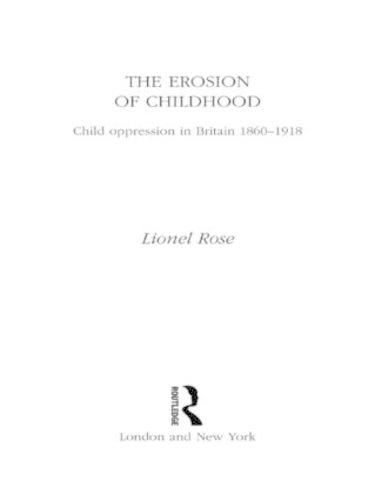Readings Newsletter
Become a Readings Member to make your shopping experience even easier.
Sign in or sign up for free!
You’re not far away from qualifying for FREE standard shipping within Australia
You’ve qualified for FREE standard shipping within Australia
The cart is loading…






The Erosion of Childhood discusses the changing status of children from the mid-Victorian period to the end of the First World War. The author emphasises that their status was as objects to be used and abused, rather than as people with personalities in their own right. The book encompasses the worlds of work, school and home, in which the children were exploited, and reviews the conditions to which they were subjected. Lionel Rose shows how, with time, such conditions came to be improved, and looks at the way in which the child as worker inspired the first legislative attempts to ensure a basic education. Such attempts were, he believes, inspired not so much from altruistic reasons as to make’ the child more civilised’ and disciplined as good factory fodder. The Erosion of Childhood expresses an underlying cynicism about the real reasons for the development of state schooling after 1870. Technological advances were displacing children from some trades, and they had to be put somewhere so as not to become a menace on the street. Schools, rather than being places of enlightenment, were corrals where children were subjected to rote learning which was often meaningless. The emphasis on Payment by Results’ (teachers’ earnings being related to exam results), has echoes in today’s new National Curriculum in which schools are expected to compete in the pupil market’.
$9.00 standard shipping within Australia
FREE standard shipping within Australia for orders over $100.00
Express & International shipping calculated at checkout
The Erosion of Childhood discusses the changing status of children from the mid-Victorian period to the end of the First World War. The author emphasises that their status was as objects to be used and abused, rather than as people with personalities in their own right. The book encompasses the worlds of work, school and home, in which the children were exploited, and reviews the conditions to which they were subjected. Lionel Rose shows how, with time, such conditions came to be improved, and looks at the way in which the child as worker inspired the first legislative attempts to ensure a basic education. Such attempts were, he believes, inspired not so much from altruistic reasons as to make’ the child more civilised’ and disciplined as good factory fodder. The Erosion of Childhood expresses an underlying cynicism about the real reasons for the development of state schooling after 1870. Technological advances were displacing children from some trades, and they had to be put somewhere so as not to become a menace on the street. Schools, rather than being places of enlightenment, were corrals where children were subjected to rote learning which was often meaningless. The emphasis on Payment by Results’ (teachers’ earnings being related to exam results), has echoes in today’s new National Curriculum in which schools are expected to compete in the pupil market’.